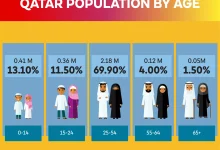The Kurdish population in Turkey is a significant and distinct demographic within the country’s diverse population. Estimates of the Kurdish population vary due to the lack of precise data and the complex interplay of historical, political, and social factors. However, it is generally accepted that the Kurds constitute a substantial minority in Turkey, with various sources suggesting figures ranging from 10 to 20 million individuals.
Historical Background
The Kurds are an ethnic group with a distinct language, culture, and identity, primarily residing in a region often referred to as Kurdistan, which spans parts of Turkey, Iraq, Iran, and Syria. The Kurdish population in Turkey has a rich historical presence, dating back to ancient times. The region that is now southeastern Turkey has historically been part of Kurdish cultural and political landscapes. The modern political and social status of the Kurds in Turkey has been shaped by a series of historical events, including the Ottoman Empire’s policies and the subsequent formation of the Turkish Republic.
Demographic Distribution
Kurdish people in Turkey are primarily concentrated in the southeastern and eastern regions of the country. The provinces with the highest Kurdish populations include Diyarbakır, Şanlıurfa, Mardin, Batman, and Hakkari. These areas have traditionally been the center of Kurdish cultural and political life, though significant Kurdish communities also exist in other regions and major cities such as Istanbul and Ankara due to internal migration.
Cultural and Linguistic Aspects
The Kurdish population in Turkey is diverse in terms of its cultural and linguistic practices. Kurdish culture is characterized by its unique traditions, folklore, music, and dance. The Kurdish language, which belongs to the Indo-Iranian branch of the Indo-European language family, has several dialects, including Kurmanji, Sorani, and Pehlewani. Kurmanji is the most widely spoken dialect among Kurds in Turkey.
Despite the rich cultural heritage, the Kurdish language and cultural practices have faced significant challenges due to political and social pressures. For many years, the use of the Kurdish language in public and educational settings was restricted by the Turkish government. However, recent years have seen some easing of these restrictions, with Kurdish language education and media becoming more accessible.
Political and Social Issues
The Kurdish population in Turkey has been at the center of a long-standing and complex political conflict. The Kurdish question encompasses issues related to ethnic identity, political representation, and autonomy. The conflict between the Turkish state and Kurdish militant groups, most notably the Kurdistan Workers’ Party (PKK), has been a significant source of tension and violence in the region.
The PKK, which was founded in the late 1970s, initially sought an independent Kurdish state but later shifted its goal to greater autonomy and rights for Kurds within Turkey. The armed conflict that ensued has resulted in numerous casualties and has had a profound impact on the Kurdish population and the broader Turkish society. Various peace processes and negotiations have been attempted over the years, but a lasting resolution to the conflict remains elusive.
Socioeconomic Conditions
The socioeconomic conditions of the Kurdish population in Turkey are influenced by a range of factors, including regional disparities and the impact of ongoing conflict. The southeastern and eastern regions, where many Kurds live, have historically been among the least developed areas in Turkey. Issues such as poverty, unemployment, and lack of access to quality education and healthcare are prevalent in these regions.
The conflict has also exacerbated these socioeconomic challenges, with displacement and destruction affecting many Kurdish communities. Efforts to address these issues through regional development projects and investments have been made, but progress has been uneven.
Migration and Urbanization
In recent decades, there has been significant internal migration of Kurds from rural areas to urban centers in Turkey. This migration has been driven by various factors, including economic opportunities, conflict, and the search for better living conditions. Major cities such as Istanbul and Ankara have seen growing Kurdish populations, leading to the formation of vibrant Kurdish communities in urban settings.
Urbanization has brought both opportunities and challenges for Kurdish individuals and families. While migration has provided access to better economic prospects and educational opportunities, it has also led to issues related to integration and the preservation of cultural identity.
Cultural Renaissance and Activism
In recent years, there has been a resurgence of Kurdish cultural and political activism. Kurdish cultural organizations, media outlets, and political parties have played a crucial role in advocating for Kurdish rights and promoting Kurdish cultural heritage. This cultural renaissance has been marked by a renewed focus on preserving and celebrating Kurdish traditions, language, and history.
The political landscape has also seen the emergence of Kurdish political parties that seek to address the needs and aspirations of the Kurdish population. The People’s Democratic Party (HDP) is one such party that has gained prominence in Turkish politics, advocating for democratic rights, minority rights, and peace.
International Perspectives
The Kurdish issue in Turkey has attracted international attention and involvement. Various international organizations, human rights groups, and foreign governments have expressed concern over the treatment of Kurds and the ongoing conflict. The Kurdish diaspora, which extends beyond Turkey to countries such as Germany, Sweden, and the United States, has also been active in raising awareness and advocating for Kurdish rights.
International diplomatic efforts have played a role in shaping the discourse around the Kurdish issue, though solutions to the conflict and the broader Kurdish question remain complex and multifaceted.
Conclusion
The Kurdish population in Turkey represents a significant and dynamic component of the country’s demographic and cultural landscape. The history, culture, and political challenges faced by the Kurdish people are integral to understanding the broader socio-political context of Turkey. As the situation continues to evolve, the Kurdish community remains a key player in shaping the future of the region and the nation as a whole.




